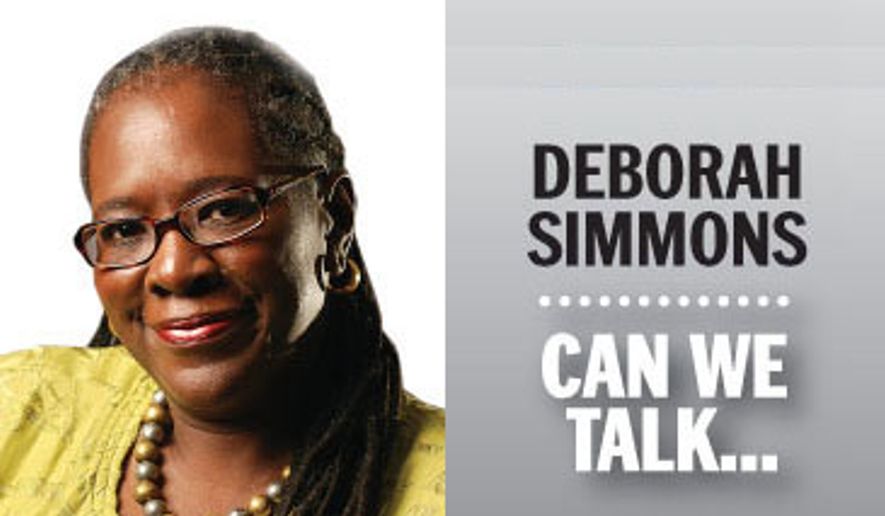ANALYSIS/OPINION:
Have you been to a funeral lately? A funeral where the assembled start reaching into their jacket pockets and purses? Grabbing their cellphones? Looking up and down the pews?
They sense the cadence and know the preacher is about to cite one or more passages of the Bible and they want to make note of it.
They want to listen to his interpretation and its contextual relationship to the mourned, and they want to be able to study it further.
After all, the Bible is a textbook, you know.
It’s something Barack Obama should have instinctively known to do Tuesday, before he sat with his immigration reform brethren to discuss amnesty. Unfortunately, there our shirt-sleeved president sat, in America’s Bible Belt, in Nashville, Tennessee, trying to gain political points but misquoting scripture.
SEE ALSO: Obama quotes nonexistent Bible verse during speech about immigration
“The good book says, don’t throw stones at glass houses, or make sure we’re looking at the log in our eye before we are pointing out the mote in other folks’ eyes,” he said.
Ouch!
There’s the Book of Proverbs in the Good Book, for certain, but its author’s name isn’t “Unknown Origins.”
Seemingly, Mr. Obama doesn’t get what a lot of other Americans do not get, and that is that the Bible, like Proverbs, is a teaching tool.
The Bible as a saving grace
The Puritans got it right: The Bible was a saving grace.
There was a time in this great republic of ours when it was illegal to teach blacks how to read and write. Slave or free, mulatto or as lusciously black-skinned as my Simmons ancestors. It didn’t matter.
And generally speaking, poor folks, black and white, weren’t expected to attend school with regularity and couldn’t afford to go anyway, as tending to the farm or “family business” was far more demanding and critical to family survival than getting an education.
The masses used to know that and favor it, as there was a time when lavish hotels and seedy motels alike had Bibles in their rooms or at least a note to visitors on how to get one.
There also was a time when Bibles were in public schoolhouses, and a student was chosen to recite a passage or lead the class in prayer — until the U.S. Supreme Court pointed out the mote in other folks’ eyes in 1962 and cast out organized prayer in public schools.
The Puritans saw fit to teach youngsters how to read and be prepared to navigate the crossroads of American life with a little book called the New England Primer. Able to fit in the palms of small hands, the Primer used words like fidelity, humility and fornication to teach children not only how to read, but to marry that literacy with moral lessons in the Bible. The Puritans taught that learning, like familiarity with the godly ways of the Bible, were one and the same.
The Bible is a textbook
I remember listening to my dad and our family pastor, the Rev. Chester A. McDonald Sr., holding long, passionate discussions about theology, and the Bible was their textbook.
Daddy held similar discussions with an atheist who was a family friend, an agnostic friend of mine and a doubting Thomas. “Do you really think you’re in charge,” Daddy queried the agnostic as he peered over his eyeglasses. “God is but a state of mind,” my agnostic friend answered. My dad handed him a Bible and told him to start at the beginning, “like God did.”
I laughed so hard for so long tears streamed down my face.
My father-in-law used the Bible in similar fashion, quite often, with Bible in hand, advising child and adult alike: “If you don’t get permission in here, don’t do it.”
Young people who have never laid hands nor eyes on a Bible as a learning tool don’t even know what they don’t know but should know.
A decade ago, a poll found that American teens had but basic familiarity with:
• Moses
• The meaning of Easter
• The Golden Rule
• The Good Samaritan
• Adam and Eve
And, interestingly, while teens can probably recite the titles of at least 10 Taylor Swift, Bruno Mars and Beyonce tunes, there’s slim chance they can recite the Ten Commandments, let alone know how to find it in the Bible without the help of Google.
The Bible breaks it all down
Parents want their kids out of school for Easter, but nonbelievers don’t want school systems to call it “Easter break.”
Ditto regarding Christmas. It’s no longer “Christmas” break but “winter break.”
If you’re not taking a break for the birth or death of Christ, then precisely why do taxpayers pay for you to take a break at all?
• Deborah Simmons can be reached at dsimmons@washingtontimes.com.
• Deborah Simmons can be reached at dsimmons@washingtontimes.com.




Please read our comment policy before commenting.